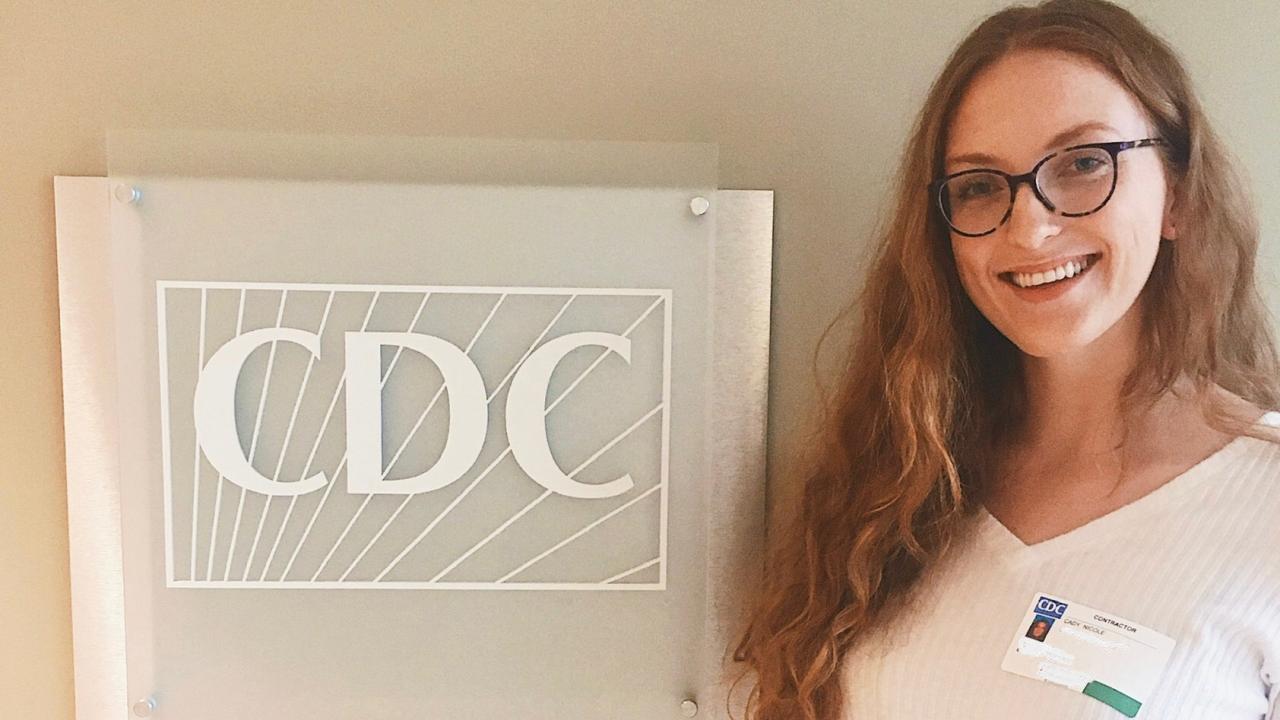
DVM Student Helps Manage Coronavirus Outbreak at the CDC
Nicole Cady, Class of 2020, recently spent a few weeks involved in managing the novel coronavirus outbreak from the Centers for Disease Control and Prevention (CDC) in Atlanta as an Epidemiology Elective Program Student. We caught up with her to ask a few questions about her role as a DVM student involved in managing this outbreak.
Please tell us about your experience at the CDC.
For the past several weeks, I’ve been privileged to be part of the Epidemiology Elective Program at the Centers for Disease Control and Prevention. This program selects senior medical and veterinary students interested in careers in public health and allows them to spend 6-8 weeks working alongside DVMs and MDs at the CDC in their respective divisions to assist with ongoing projects and learn more about career paths at CDC.
I was placed in the Division of Global Migration and Quarantine on the Zoonoses team, which is led by a DVM, Dr. Kendra Stauffer. Some of my duties on the Zoonoses team included assisting with non-human primate facility inspection and developing rabies vaccination guidance for canine imports to the United States. Due to the timing and location of my placement, I was lucky enough to also be actively involved in the COVID-19 response.
How are you helping to manage the coronavirus outbreak?
Working with a team within the Incident Command System structure of the CDC COVID-19 response, I have been assisting in the creation, implementation, and execution of outbreak prevention and control measures for COVID-19 inbound to the United States, such as screening at airports, quarantining of individuals, and communication within the agency and to the public on response efforts.
You have grounding in One Health. How has that background helped you think of the outbreak?
As with many infectious diseases, especially emerging infectious diseases, this virus is suspected to be a zoonosis. Veterinarians have unique training in understanding the epidemiology, pathophysiology, and ecology of this type of disease transmission, thus making them crucial components of prevention and control efforts.
What have you learned from your experience about diseases and disease transmission?
This outbreak and the subsequent response by the United States and countries around the world has demonstrated to me the vast obstacles we face at the intersection of science, politics, and culture in controlling disease transmission of pandemic potential.
How do you see this influencing your abilities or future as a veterinary professional?
This experience has not only been a vast learning experience in the operations of the Center for Disease Control and Prevention, but has allowed me to meet amazing individuals working in public health that I hope to have the privilege to work with in the future.
Anything else that you would say about this experience?
I feel extremely privileged to have been involved at the CDC during this unique time and been supported by such a great team. It has strengthened my interest in applying my veterinary education to the public health realm and using a One Health approach in studying disease transmission and zoonoses.
